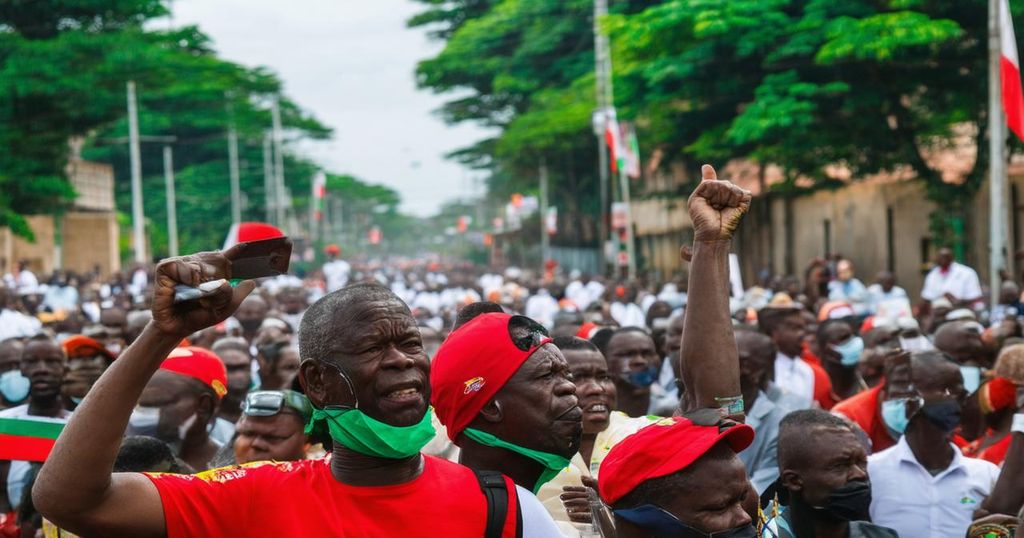Mozambique Election Results: Frelimo Declares Victory Amid Fraud Allegations
The Frelimo party’s Daniel Chapo has been declared the winner of the presidential election in Mozambique, securing over 70 percent of the votes. Opposition allegations of fraud have surfaced, particularly from runner-up Venancio Mondlane. Close observers report instances of electoral misconduct. Tensions are high following acts of violence against opposition officials, amid calls for public demonstrations against the ruling party’s extended regime.
The recent presidential election in Mozambique has culminated in the ruling Frelimo party declaring its candidate, Daniel Chapo, the victor, amidst allegations of electoral fraud from the opposition. According to the National Election Commission (CNE), Mr. Chapo received over 70 percent of the votes, thereby solidifying Frelimo’s dominance, which has lasted nearly five decades since Mozambique attained independence from Portugal in 1975. The election results announced on October 9 indicated that Venancio Mondlane, an independent candidate, secured over 20 percent of the votes, while Ossufo Momade from the opposition Renamo party garnered more than 5 percent. As a result, Chapo is set to take office in January as Mozambique’s first president born after the country gained independence. Mr. Mondlane, who has raised concerns regarding electoral integrity, claimed victory for himself, asserting that electoral fraud and manipulation were prevalent, favoring the ruling party. He has mobilized public support through social media, advocating for protests against Frelimo’s prolonged rule. “The time has come for the people to take power and say that we now want to change the history of this country,” he stated in a recent Facebook post. Frelimo has routinely faced accusations of electoral misconduct, which they have consistently denied. The current president, Filipe Nyusi, is concluding his maximum of two terms. In this tense political environment, the European Union’s observer mission noted instances where their observers were barred from monitoring vote counts in certain locations, additionally citing “unjustified alteration” of polling results. This election period has seen tragic incidents, including the assassination of Elvino Dias, a legal advisor to Mondlane, which has heightened tensions within the country. Following this event, police have encountered difficulties in managing demonstrations, employing teargas against angry protesters alleging election misconduct.
The political landscape in Mozambique is heavily influenced by the Frelimo party, which has ruled since the nation gained independence in 1975. This long-standing dominance has been marked by periods of civil conflict, particularly against the Renamo party, which emerged as the main opposition following a brutal civil war. The recent election, marked by claims of electoral fraud, reflects ongoing tensions between Frelimo and opposition parties, who allege that the ruling party manipulates electoral outcomes to maintain its grip on power. The situation is further complicated by incidents of violence against opposition figures, leading to widespread unrest and calls for reform among the populace.
The presidential election in Mozambique has reaffirmed the Frelimo party’s dominance, albeit amidst serious allegations of electoral fraud and claims of violence against opposition figures. Daniel Chapo’s victory marks a historical point, with him becoming the first president born post-independence. As the situation unfolds, tensions appear to be escalating, particularly with the opposition expressing staunch resistance to what they perceive as corrupt electoral practices, thus prompting a call for demonstrations to demand accountability and reform.
Original Source: www.aljazeera.com




Post Comment